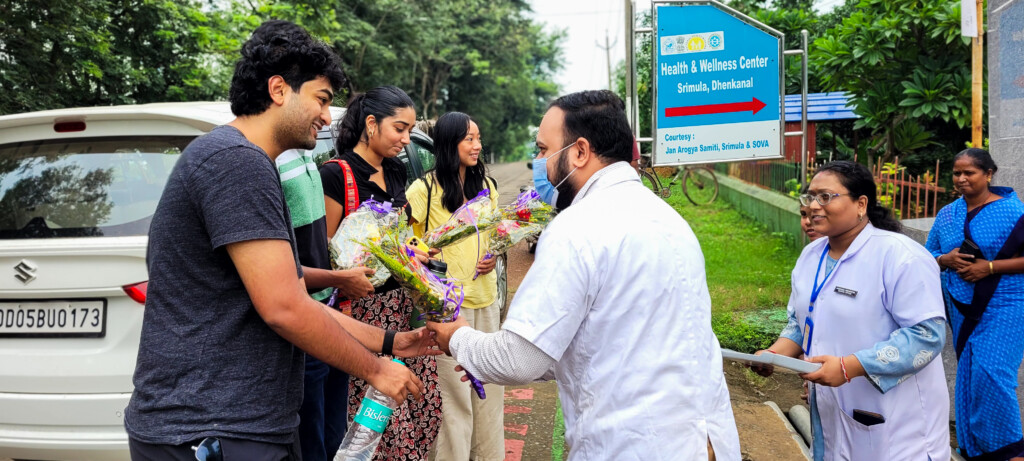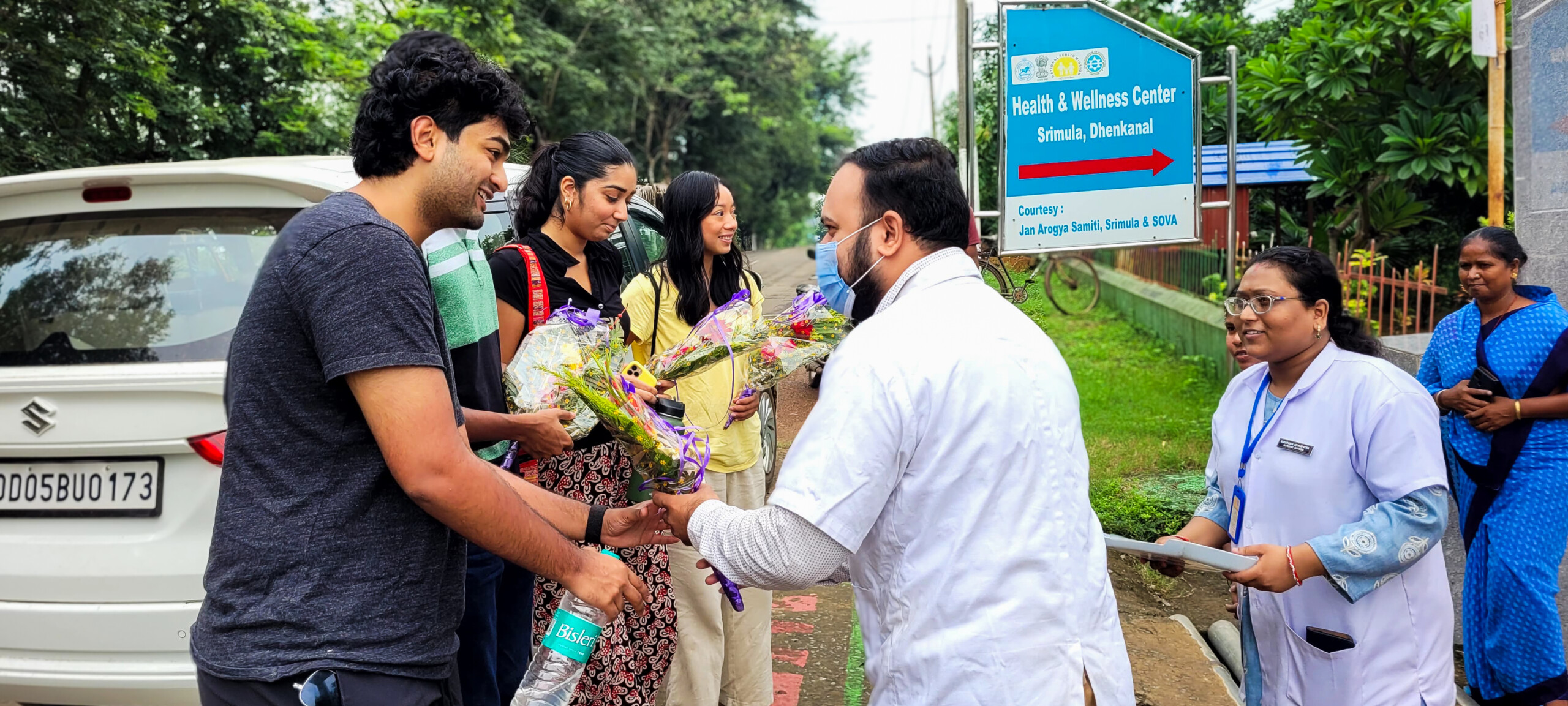Why healthcare?
While thousands of pre-health students ask themselves this question every day, these four GlobeMed members at the University have a pretty good answer after their self-described “life-changing” trip to rural Odisha, India. There, they learned the ins and outs of the Indian healthcare system as part of the Grassroots Onsite Work (GROW) internship.
GlobeMed, founded in 2007, strives to “empower students and communities to work together to improve the health of people living in poverty around the world.”. As part of their mission, the UR GlobeMed chapter has partnered with the Social Organization for Voluntary Action (SOVA) based in Odisha, India, since 2016. Every year, a handful of students participate in the SOVA-organized GROW Internship. This summer, the team juggled a packed schedule, from conducting interviews with notable healthcare officers and health surveys to visiting wellness centers and observing Breastfeeding Week.
When offered the opportunity to participate in GROW, the four GlobeMed members were confident that it would be nothing short of a “once-in-a-lifetime” experience. Sophomore Naidhruva Deb went with the intention of “giving back to [her] own people.” Sophomore Zain Sheikh, along with senior and GlobeMed Co-President Gizelle Villanueva, hoped to learn about a new culture while exploring the intricacies of their aspired careers in healthcare. Senior John Alex believed that he was going on a “strictly research-oriented trip” but realized that “in the end, it wasn’t just research.” Almost immediately after landing in Dhenkanal — a small city with historical charm and picturesque rivers and waterfalls — the University’s GROW team realized just how much they would learn and grow on the trip, understanding that this internship would provide them with the opportunity to extend their knowledge beyond their textbooks and lecture halls.
The people-centric approach of the Odisha healthcare community was at the crux of the GROW team’s takeaways. For Alex, seeing doctors — who “didn’t make that much money but were very qualified” — working in the free public healthcare system to serve disadvantaged community members showed how much each healthcare worker cared for their patients, which fueled his own passion for healthcare. He also reflects on the differences between the American healthcare system he knows and the Indian system he witnessed, suggesting that the combined homeopathic and allopathic approach that he learned about in Odisha could improve healthcare here in the states.
Deb expressed her appreciation for the One Stop Center, a shelter for domestic violence survivors, and stated that the Indian government mandating the establishment of one such shelter in each state is just one of the ways in which the Indian healthcare system is growing.
One worker pioneering this growth is Prasanta “Uncle” Das, SOVA manager and social activist. Das’ official role was the team’s guide and translator —,but more importantly to the interns, he was a role model. Alex expressed that Das, who has dedicated years to SOVA as one of the four people on the primary SOVA team, “[showed] them what it meant to be passionate.” Das has been an integral part of the work of former GROW teams, who have learned from him and others, forging many memorable relationships throughout the trip.
Conversations with the GROW team make it clear that the trip made a lasting impact on both the SOVA crew and on themselves. “Cultural fluency” and the significance of “diversity in the workspace” are two takeaways that Villanueva emphasized from her interactions with the Odisha community. Sheikh highlighted how his experience helped define his vocation for medicine, “putting into perspective why [he] wants to dedicate the rest of [his] life to [healthcare],” and noting that after an experience like this, his “why” becomes “very easy to remember.” To Deb, the long-term connection they built with their SOVA partners was worth more than “the stuff on the resume.” More so than her past research positions or summer internships, she says she “will remember this one for a very long time.”


